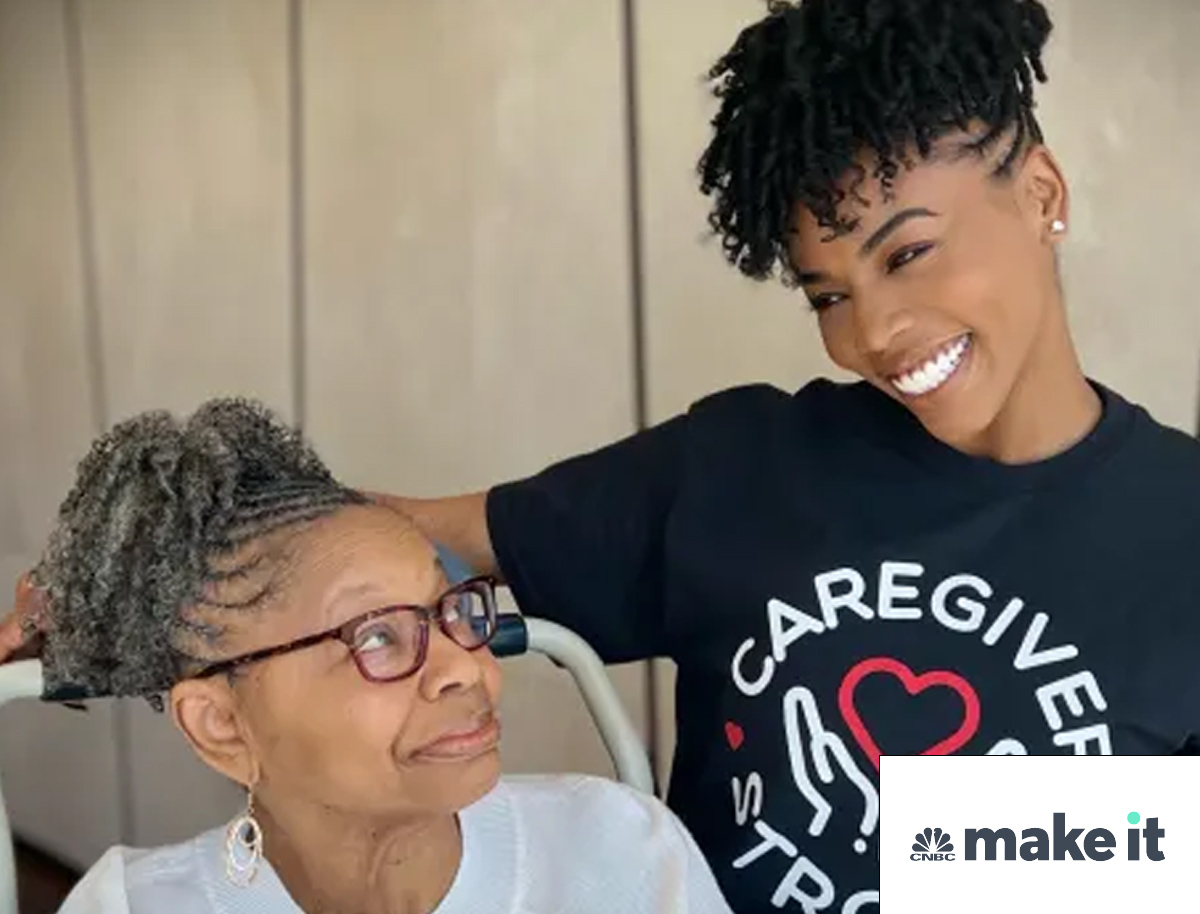Brandee Evans does just as much work off-screen as she does in her role as “Mercedes” on the popular TV series, “P-Valley.”
When she’s not filming, you can find Evans caring for her mother, who has multiple sclerosis. She is also an advocate for MS visibility in the Black community and works with companies like Genentech to raise awareness.
In the beginning, caregiving was a challenge that Evans was taking on pretty much all by herself.
“I was one of those people that didn’t want to let people in, and it almost killed me. I literally was breaking down in my health, my mental health and my physical health, because I was trying to do it all,” says Evans.
“And I’m like, ’Well if you don’t let someone help you, you’re not even going to be able to be your own mom’s caregiver because you’re going to end up in the hospital.” Now, she has two to three people, who rotate schedules and help care for her mom.
Still, Evans equates managing her work and caregiving with walking “on a tightrope.”
“It is very difficult. Just last week, I was shooting a movie, and Mom went into the hospital,” she says.
Approximately 53 million Americans are unpaid caregivers for an adult or child, including relatives and friends, according to a 2020 report published by the National Alliance for Caregiving and AARP.
Here’s what Evans has learned along the way and tips for those who help care for a sick loved one.
3 tips for caregivers
1. Ask for help when you need it
As understandable as it is for you to want to handle everything for your loved one by yourself, it’s also extremely taxing, says Evans.
The biggest lesson she learned is the importance of leaning on others for additional support, especially after she tried to take care of everything on her own.
“Ask for help. It is okay to ask for help. I think I had a lot of pride, and I thought I could do it by myself. And no, you can’t do it by yourself,” she says.
“Get you a group of people that love you, that can help you and support you. That is the biggest thing for sure.”
2. Listen to the person you’re taking care of
At first, it was difficult for Evans to accept that her mother had MS, especially when her father first broke the news to her.
“If I’m honest, I was in denial because it just felt like, ’No, Daddy you’re not going to tell me that the strongest woman I know can’t walk and is going to be in a wheelchair one day,” says Evans.
It’s normal to have your own emotions about what your loved one is going through, but be sure that you’re not allowing your feelings to stop you from listening to their needs, says Evans, which is something she struggled with initially.
Aim to do “just the simple things like listening, listening to your loved ones when they tell you something is wrong, something is different. Do not challenge their word,” she says.
3. Educate yourself on your loved one’s condition
When her mom first received her diagnosis, Evans had no clue what MS was. Now, she continues to learn as much as she can about the condition, which is extremely helpful during doctors’ visits because her mom is mostly nonverbal and she often speaks on her behalf.
“Last week, my mom was in the hospital and I had to fly across the country, just to advocate for her as an MS patient in one of the top hospitals in the country. And it’s not that people don’t care, just that they don’t know,” she says.
She’s come across nurses who’ve shared with her that they’ve never had an MS patient before.
For this reason she says, “What I have learned is to lead with empathy and grace. People don’t know what they don’t know, and instead of getting mad, I just educate and share what I’ve learned.”
Written by:





